Some links in this post are from our partners. If a purchase or signup is made through our partners, we receive compensation for the referral.
RRSPs are great investment vehicles for Canadians. Most people understand that contributing to their RRSP allows them to invest for their retirement in a tax-deferred manner.

But for a lot of us, retirement is a long way away.
Let’s face it, we’re all human, we want immediate satisfaction! We want instant rewards for being so responsible by taking care of our future through RRSP contributions.
Well if that’s the case, you’re in luck actually,
Open up a RRSP with Wealthsimple Invest Today ($25)
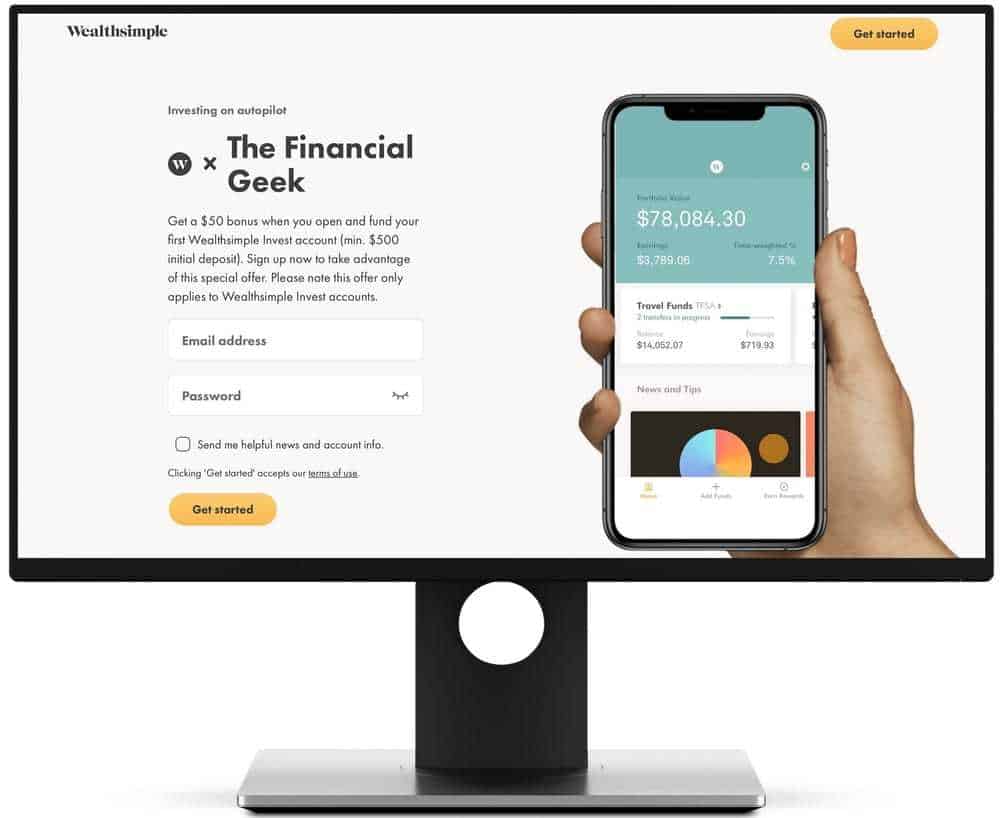
Earn a $25 Bonus with Sign – Up
- RRSP contributions are tax deductible
- Very simple sign-up process
- No account minimum
- Account creation is 100% free
- Modern user interface
Do RRSP Contributions Reduce Taxable Income?
Contributions made to your RRSP are tax deductible. This means you can reduce your taxable income in the current year by contributing to your RRSP.
Put simply, if you make $60,000/year and you contribute $5,000 to your RRSP, your taxable income will only be $55,000.
So for those of you, myself included, who just want a little reward for contributing to your RRSP every year, the Canadian Government gives this to us in the form of a tax break.
Let’s look at 2 different scenarios to demonstrate how contributing to your RRSP will reduce your taxable income and therefore reduce the amount of taxes you owe.
Danny, who lives in Toronto Ontario has an income of $60,000 a year.
Josh, who lives in Toronto Ontario has an income of $60,000 a year.
Scenario 1 – Danny doesn’t care about his retirement and doesn’t contribute any money into his RRSP, he parties like a rock star and lives his best life.
Total taxable income for Danny is $60,000 and his total income taxes for 2020 would equate to roughly $10,718.
Scenario 2 – Josh does care about his retirement and contributes $5,000 a year to his RRSP. He is still able to live his best life and party with Josh, but he just has $416 ($5,000/12) less per month to do so.
Total taxable income for Josh is $55,000 and his total income taxes for 2020 would equate to roughly $9,260 (I used neuvoo.ca for my income tax calculations.)

As you can see, Josh pays $1,458 (13.6%) less in taxes than Danny in 2020.
Not only that though, in doing so, Josh knows how nicely set up he will be for retirement which makes his partying that much more enjoyable.
Danny, well you’ll owe more in taxes each year and you’ll have no money when you retire.
Anyways, the point of this article is not to persuade you to contribute to your RRSP (even though you should), but rather to inform you that yes, RRSP contributions will directly benefit you each year by reducing your taxable income which will result in you paying less in income taxes.
Quick Note #1 – If you work for an employer and your taxes get taken out of each pay-check, contributing to your RRSP could likely result in a nice tax rebate for you. Why? The taxes taken off your pay-check will likely be based on your overall employment income – so reducing your taxable income to an amount lesser than this means you’ll be over taxed.
Situations vary though, so for further clarification, be sure to speak with your payroll or accounting department.
Open up a RRSP with Wealthsimple Today and Earn a $25 Bonus with your Sign-up.
Open up a RRSP with Wealthsimple Invest Today ($25)

Earn a $25 Bonus with Sign – Up
- RRSP contributions are tax deductible
- Very simple sign-up process
- No account minimum
- Account creation is 100% free
- Modern user interface
You Can Defer Your Tax Deduction
So yes, you can deduct your RRSP contributions from your taxable income. You can actually make contributions 60 days into the new year and still deduct them from your previous years taxable income.

For example, any RRSP contributions made up until March 2nd of 2020 can be deducted from your 2019 taxable income.
However, just because you can deduct your contributions in the year you make them (or 60 days after), doesn’t mean you have to. In other words, you can carry forward unused deductions for future years.
Why would you do this?
Well, if you know you will make a higher income in the next year or two, then holding off on deducting your RRSP contributions for when you’re in a higher tax bracket could make much more of a difference.
Or maybe you are taking a year off work? You just had a baby? Starting your own business? Who knows, life happens and some years are more fruitful than others and that’s okay!
If you’re still able to make RRSP contributions during the less fruitful years then that’s great! But maybe hold off on using your contributions as tax deductions until your income rises again. You’ll thank yourself later!
Waiting to claim your RRSP contributions for the future is contrary to the instant gratification argument I made earlier in the article, but waiting an extra year or two could save you even more money come tax season.
Not only this, but a large tax reduction can decrease your taxable income to a point where you are actually in a lower tax bracket.
For example, the current (2020) Federal income tax rate for a Canadian making over $48,535 is 20.5%, but once your income drops below this amount, your federal income tax rate is reduced to 15%.
So, if you make around $50,000- $55,000 a year and you play your cards right, you could easily drop down a tax bracket.
For more information about Canadians Tax Brackets, check out Wealthsimple’s article here.
At the end of the day, don’t go crazy trying to figure out how much you should contribute and how much of that you should deduct.

But, if you think your income will increase over the next year or two, delaying your RRSP deductions for when this happens can be a financially wise move.
Related Financial Geek Article: Retire Early as a Canadian | 15 Tips and Tricks
When RRSP Contributions Won’t Reduce Your Taxable Income
Okay, so now we know RRSP contributions are tax deductible, either in the current year or in future years. However, there are a few exceptions where “RRSP contributions” won’t reduce your taxable income.
Allow me to explain. There are currently two scenarios in which Canadian’s can withdraw money from their RRSP in a tax free manner:
- Home Buyers Plan
- Lifelong Learning Program
Here’s the thing though, when you withdraw money from your RRSP for either of these two reasons you are required to re-contribute the funds you withdrew over a specified period of time – almost like you are paying back a loan but to yourself.
While I won’t get into the details and repayment rules for each of these programs, just know that any of your RRSP contributions that are assigned to your repayment plan ARE NOT tax deductible and can’t reduce your taxable income.
Why? Well because you’ve already claimed these tax breaks on your initial contributions and all your doing now is simply repaying the amount you withdrew.
In other words, the CRA doesn’t consider repayments under LLP or HBP as RRSP contributions and therefore they are not tax deductible.
If you don’t believe me, I don’t blame you! But here is proof of what I just said.
Lifelong Learning Program (LPP)

Home Buyers Plan (HBP)

Here are the links to both articles as well. But come on! I wouldn’t lie to you would I?!
Lifelong Learning Program and Home Buyers Plan
Conclusion
If you are reading this article, you want to know if RRSP contributions reduce taxable income, so I want to be sure when you finish this article you know the answer to this question without any doubt in your mind.
So to be clear, RRSP contributions will reduce your taxable income. But, you don’t have to claim your RRSP deductions in the same year you made the contributions – you can carry forward these deductions for future years if you think it’ll make sense financially.
Lastly, remember that the CRA does not recognize LLP or HBP repayments as RRSP contributions and therefore the repayments are not tax deductible and they cannot reduce your taxable income.
If you haven’t already opened up an RRSP, I’d recommend doing so with Wealthsimple. My article here talks about 10 reasons why I recommend them and how to get started.
If you’d rather jump right to the sign-up page, go here and you’ll get a $25 cash bonus for signing up.
Anyways folks, I hope this article provided you with the answers you were looking for. I need a beer.
Bye for now!
Geek, out.



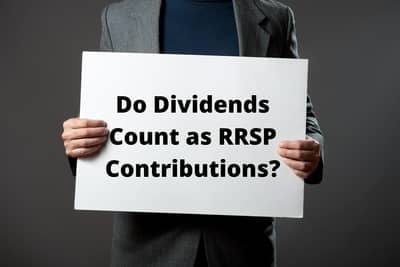

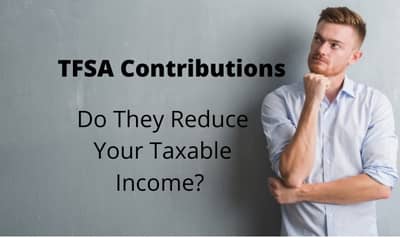
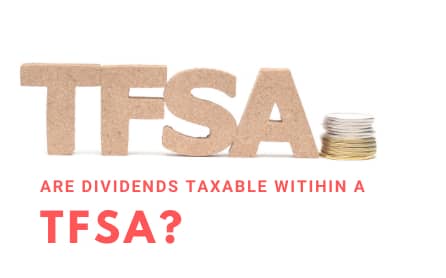
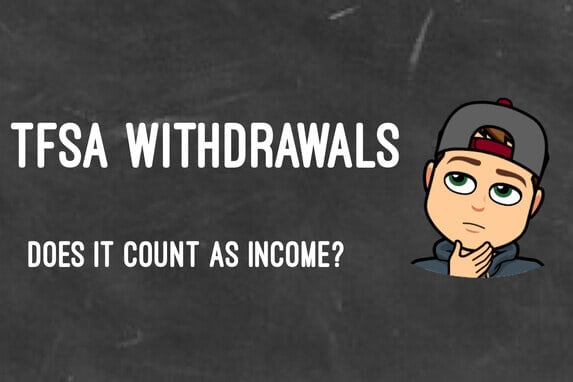
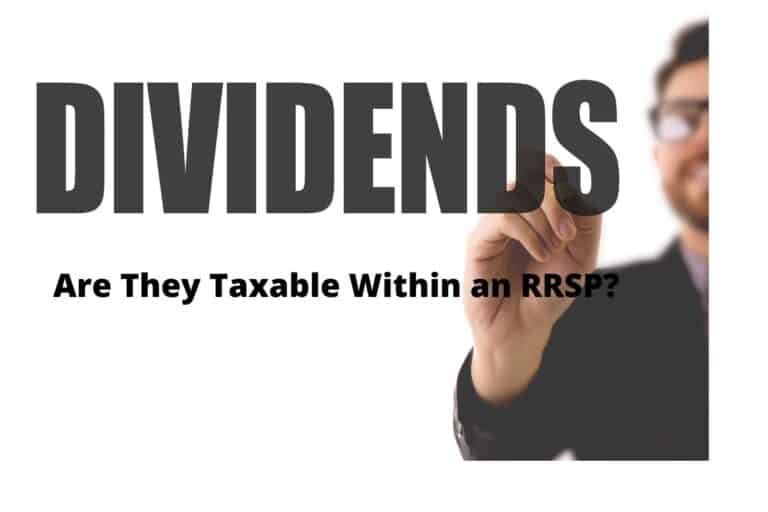
4 Comments
Comments are closed.